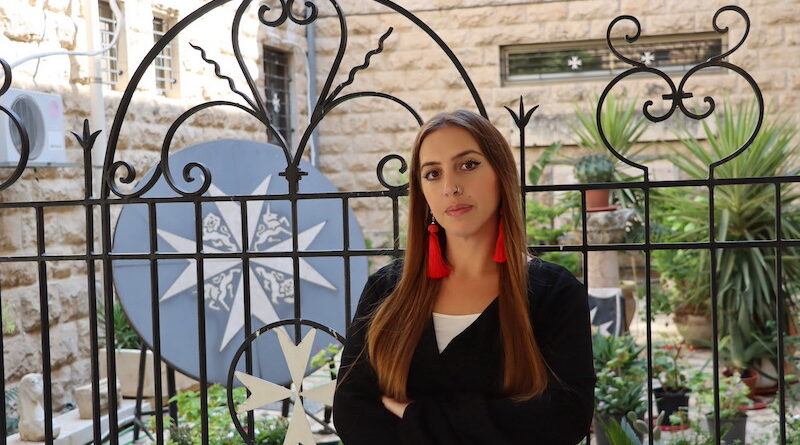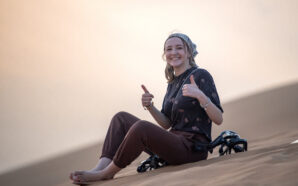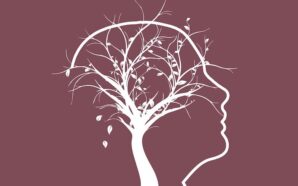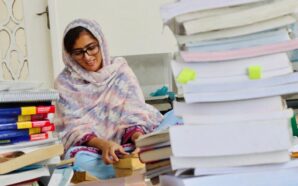This interview is part of Ananke's Special Spotlight Edition focusing The Fred Hollows Foundation's 30 year of change making in the eye health and development sector with a special emphasis on inclusion and gender equality.
Tell us about yourself and your work focusing development, health and eye care.
I hold a master’s in business administration and a diploma in project management. I worked for ten years in Al-Quds University in student affairs and was handling 11,000 students. After that I worked for five years in planning and development, then I started working in the eye hospital, first in fund raising then I became in charge of projects.
I joined the hospital in March 2020 when Covid-19 had started to spread. I started in fundraising and then became responsible for two projects of the hospital in Gaza and the West Bank.
I mostly work in the office, but also conduct field visits when I need to assess eye health projects. However, that is difficult in Gaza due to the situation, which hasn’t allowed me to visit the project yet. In the West Bank on the other hand, I can visit the project to meet with organizations and the schools with which we work. Therefore, I can describe my work as both in an office job and in the field.
I’m a mother of a 13 years old boy. I spend my time helping him in his education and extracurricular activities.
In fact, I’m not specialised in eye care but in project management. I like to volunteer, and that’s why I did volunteer on different projects that happened to be personal initiatives. For instance, I used to help orphans and older people. When I started my recent job, I felt that my volunteer work, which I used to undertake irregularly and informally, has become formal since I started working with St. John Hospital and handling bigger funds. Thanks to the outreach team, we were able to access areas that I was unable to access in the past, including displaced villages, where life differs significantly than that in the city.
This spirit of humanitarianism is also a core vision of the Fred Hollows Foundation. Tell us about the projects you are working on.
I started managing two projects in the West Bank and Gaza, in January and February. There, I began to deal with people from The Fred Hollows Foundation. I met Ghana Bola from the Global Programs, and through our conversations I got to learn more and more about the organisation.
What are some of the barriers as far as access to eye health in Palestine is concerned?
Many Palestinians live below the poverty line, which means many people can’t afford healthcare services including eyecare. When I visit these areas, I notice that people don’t have the basic necessities of life, which are always available for us, such as electricity and water. It is hard to believe these life conditions are existing in 2022. Some people can’t access treatments of preventable diseases because there is no clinic that offers such services. For example, we see diabetic patients with a very high blood sugar rate, but have never had their eyes checked. Poverty and restricted mobility, in addition to the economic situation, prevent these people from accessing these simple services. All of these obstacles represent challenges for me because I can’t imagine that there are people who can’t access such services. Additionally, the siege in Gaza denies entry of medical equipment necessary to perform simple operations. These are the obstacles we see on the ground.
Reaching the largest proportion of marginalised people whether in the West Bank or In Gaza, as well as in Jerusalem. Additionally, there were Covid-19 outbreaks in several health centres, including the eye hospital in the West Bank, which was subsequently closed and all patients were transferred to our hospital for treatment. We saved many people who would’ve otherwise lost their eyesight. Furthermore, we concentrate at the moment on orphanages. We perform regular check-ups on the children as part of our regular check-up programme that we organise every six months. We try to reach as many marginalised people as possible.
In situations of crises as well as affordability, how do organizations and hospitals manage?
Relying on our donors, we try as we might to provide the necessary funds so the patients don’t have to bear any expenses in light of their current economic situation. We aim that patients pay as little as possible or even nothing. We don’t want people to lose their sight because they can’t afford treatment.
As I said, the major eye hospital in Ramallah was closed and turned into a Covid-19 quarantine and treatment centre. Subsequently, many patients who were being treated there were no longer able to receive the necessary health care. Therefore, the fact that St. John Hospital was there and able to remain open during these circumstances, helped many people to save their eyesight and were not affected by the lockdown.
During the first period of the lockdown, the situation was extremely difficult due to restrictions on movement and other lockdown measures such as roadblocks. Therefore, many people were facing difficulties to access treatment.
We were working in shits, i.e. the whole team was never working all together at the same time. We also observed safety measures such as keeping a physical distance, wearing masks and disinfecting, in order to reduce contact.
The situation improved and we don’t hear here about corona, as if the wave has vanished. Thanks God.
What would you like to say about the Foundation, which is celebrating 30 years of work on the ground?
I would like to thank The Fred Hollows Foundation and its people for their support of marginalised areas such as Pakistan and Palestine. They support people who are unable to care for their health due to poverty. The Fred Hollows Foundation help these groups of people save their vision, which is very important for us as humans. The blind become a burden for their families and children. Their mental health deteriorates, affecting their economic situation as well. The foundation also helps people to be independent financially, so they can provide for their families.
I believe that vision and eye care is not prioritised enough in terms of awareness and covering the costs of treatment. We can raise awareness among children through outreach projects, so we can follow up on them at an early age and make sure they don’t face problems as they grow up. I believe that we can organise projects that inspect their vision, in order to avoid any problems in the future. Unfortunately, we are a country that relies on external support and without it many projects will shut down.
I can see myself taking charge of more projects that can be implement if we had the funds. We do our best to provide comprehensive services to all of those who need it. My dream is to provide as many services as possible for children. I would like to see children receiving the health care they need without any financial, social or even geographical obstacles. I would love to see this happening in the coming years.
Questions by Sabin Muzaffar











